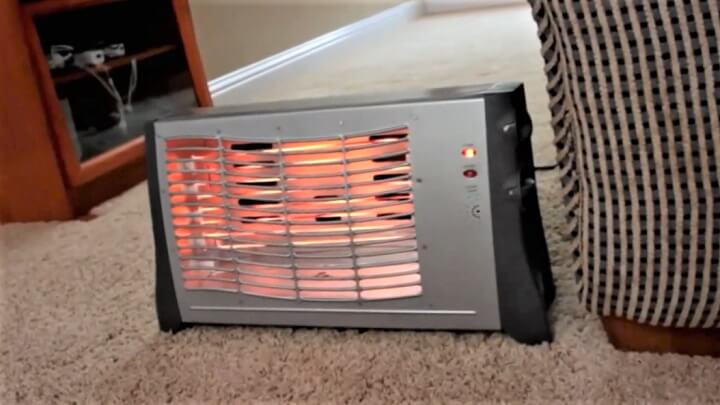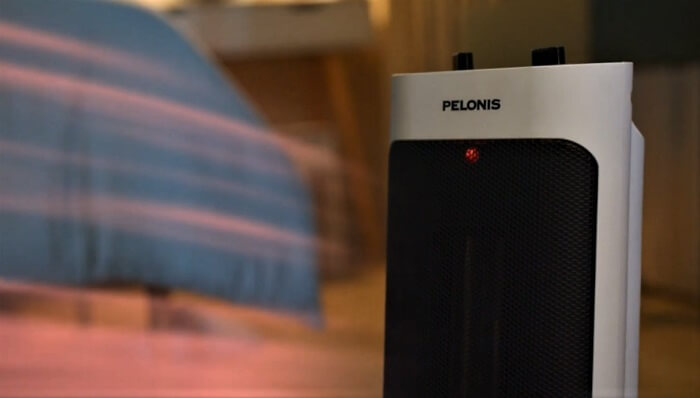A room heater is a type of appliance that is used to heat up a room or an area in a building. There are different types of room heaters available in the market today and each type has its own set of features and benefits. When choosing a room heater, it is important to consider the size of the room or area that you want to heat up, the type of fuel that you want to use, and the level of heat that you need.
Room heaters are an efficient way to heat a small area, and can be used to supplement the heat from a central heating system. Room heaters can be used to target specific areas of a room that are colder than others, or to heat a room quickly. When used in conjunction with a thermostat, room heaters can help to save energy by only heating the room when it is needed.

Advantages of Room Heaters
A room heater is a device used to heat a single room or area of a home. There are several types of room heaters available, each with its own advantages. Some room heaters use natural gas or propane, while others use electricity. The most common type of room heater is the forced-air furnace, which uses a blower to circulate warm air throughout the room.
If you have a drafty room or want to save on your heating bill, using a space heater in that room can help reduce your overall energy usage.
Room heaters provide targeted warmth. Unlike central heating systems that circulate warmed air throughout the entire house, space heaters allow you to direct the warmth where you need it most. This can be especially beneficial if someone in your family is always cold or if you have pets who like to snuggle up in warm spots.
Room heaters come in a variety of shapes and sizes, and can be powered by electricity, natural gas, or propane. There are many different types of room heaters, each with its own advantages and disadvantages.
Electric room heaters are the most common type of room heater. They are relatively inexpensive to purchase and operate and are safe to use in most homes. However, electric room heaters can be slow to heat up a room, and may not be as effective in very cold weather.
Natural gas and propane room heaters are more expensive to purchase and operate than electric room heaters, but they can heat up a room more quickly and are more effective in very cold weather.
Some types of room heaters double as humidifiers, which can be beneficial in dry winter months when the air inside your home is particularly parched. Adding moisture to the air can help alleviate static electricity, dry skin, and sinus congestion.
Related Post: Can You Use a Heater in the Bathroom?
Disadvantages of Room Heaters
Room heaters are a type of space heater that is used to heat up a small area. Although room heaters can be a convenient and cost-effective way to keep warm, there are also some disadvantages associated with them.
One disadvantage of room heaters is that they can be a fire hazard. If a room heater is not used properly, it can overheat and start a fire.
Another disadvantage of room heaters is that they can be a health hazard. If a room heater is not ventilated properly, it can release harmful gases into the air.
Also, room heaters can be a nuisance if they are not used properly. If a room heater is left on for too long, it can make the room too hot or cause the electricity bill to go up.
Is Room Heater Good for Health?
Room heaters are a great way to keep warm in the winter months, but there are some health concerns that you should be aware of before using them. Some room heaters emit harmful chemicals, such as carbon monoxide, which can be dangerous if inhaled. Additionally, if not used properly, room heaters can start fires.
To avoid these risks, make sure to read the instructions carefully before using a room heater and never leave it unattended. If you have any concerns about your health while using a room heater, consult with your doctor.
Energy Efficiency Differences Between Room Heater Types
Not all room heaters consume energy equally. Ceramic heaters provide efficient warmth by retaining heat longer, while oil-filled radiators maintain temperature steadily with less electricity. In contrast, fan heaters deliver instant heat but run continuously at high wattage, leading to greater power consumption.
Infrared heaters offer targeted warmth with minimal energy waste, making them ideal for personal use. However, their effectiveness diminishes in larger spaces. Understanding these variations helps select units that balance heating needs with electricity costs.
Newer models feature programmable thermostats and eco-modes to optimize energy use. Choosing the right technology for room size and insulation levels prevents unnecessary power drain while maintaining comfort.
Which Type of Room Heater is Good for Health?
There are many different types of room heaters available on the market today. So, which one is best for your health? Here is a look at some of the most popular types of room heaters and how they can impact your health:
1. Infrared Heaters
Infrared heaters emit radiation that penetrates deep into the skin. This can cause damage to the cells and DNA over time.
Additionally, infrared heaters can also dry out the air in your home, which can lead to respiratory problems. If you have any pre-existing health conditions, it’s best to avoid using an infrared heater.
2. Convection Heaters
Convection heaters work by circulating hot air around the room. While this type of heater is not as harmful as an infrared heater, it can still dry out the air in your home. This can be a problem for people with respiratory problems or allergies.
Additionally, convection heaters can be noisy, which can disrupt sleep patterns. If you have any pre-existing health conditions, it’s best to consult with your doctor before using a convection heater.
3. Ceramic Heaters
A ceramic Room Heater uses electricity to convert a ceramic element into heat. The element then emits infrared waves that create warmth. These waves do not circulate like those from a fan-forced heater, making them ideal if you suffer from dust allergies.
However, because they don’t move the air around, ceramic space heaters may not be suitable for large rooms.

Effects of Heater on the Human Body
When the weather outside is chilly, most people head indoors to warm up. But did you know that indoor heating can actually have some negative effects on your health? Here’s a look at some of the ways that heater use can impact your health:
Dry air: One of the biggest issues with indoor heating is that it can cause the air to become very dry. This can lead to a number of problems, including nosebleeds, respiratory infections, and static electricity shocks. It can also be very drying for your skin, leading to wrinkles and other signs of premature aging. To combat this, try using a humidifier in your home to add moisture back into the air.
Dehydration: When your body is exposed to heat, it sweats in order to cool itself down. However, when you’re indoors and not sweating due to exercise or heat exposure, you’re not replacing the fluids that are being lost.
This can lead to dehydration, which can cause headaches, dizziness, and fatigue. Be sure to drink plenty of water throughout the day (even if you don’t feel thirsty) to stay hydrated when you’re spending time indoors.
Increased heart rate: Indoor heating can also cause an increase in heart rate as your body works harder to maintain its core temperature.
This increased heart rate can put a strain on your cardiovascular system and may even lead to an increased risk of heart attack or stroke. If you have any underlying heart conditions, be sure to talk with your doctor before using an indoor heater.
Advantages of Electric Heating
Modern life is difficult to imagine without electricity. It has become so integrated into our lives that it is hard to think of living without it. We rely on electricity for so many things, from cooking and cleaning to entertainment and work.
One of the most common uses for electricity is heating. Electric heating has become increasingly popular in recent years as it offers a more efficient and environmentally-friendly option than traditional methods such as gas or coal.
1) Electric heating is very efficient as it can convert up to 99% of the energy used into heat, compared to around 60-70% for other methods such as gas. This means that you will save money on your energy bills as less energy is required to achieve the same level of heat.
2) Electric heating is also much cleaner than other options as it does not produce any emissions or pollutants. This makes it a great choice if you are concerned about your impact on the environment.
3) Electric heating systems can be easily controlled and zoned, so you can target specific areas or rooms that you want to heat. This allows you to save even more money by only heating the areas that you are using at any given time.
4) Electric radiant flooring is a particularly effective form of electric heating as it evenly distributes heat across a room from the floor up, providing a comfortable experience with minimal temperature variations.
5) Some types of electric heaters, such as infrared panels, can provide instant heat when they are turned on, making them ideal for quickly warming up space when necessary.

Disadvantages of Electric Heaters
Electric heaters are one of the most commonly used types of heaters, but they also come with some disadvantages. Here are a few things to consider if you’re thinking about using an electric heater in your home:
1. They can be expensive to run. Electric heaters are often more expensive to operate than other types of heaters, like natural gas or propane heaters. This is because electricity rates tend to be higher than the cost of other fuel sources.
2. They can be a fire hazard. One of the biggest dangers of electric heaters is that they can start fires if they’re not used properly. It’s important to always follow the manufacturer’s instructions when using an electric heater and to keep them away from flammable materials.
3. They might not be as effective in large spaces. Electric heaters work best in small, enclosed spaces because they struggle to evenly distribute warmth in larger areas. If you have a large space that you need to heat, an electric heater might not be the best option for you.
Summary
Assuming the blog post is about room heaters in general: Room heaters can be a great way to stay warm in colder weather, but there are also some potential drawbacks to using them. One advantage of using a room heater is that you can target specific areas of your home that tend to be colder than others.
This can be more efficient than turning up the overall temperature on your thermostat. Another advantage is that room heaters can provide a sense of comfort and coziness. Some people find it easier to sleep in a slightly warmer environment.
However, there are also some disadvantages to using room heaters. One downside is that they can increase your energy bill if used excessively. They can also pose a fire hazard if not used properly or if they malfunction.